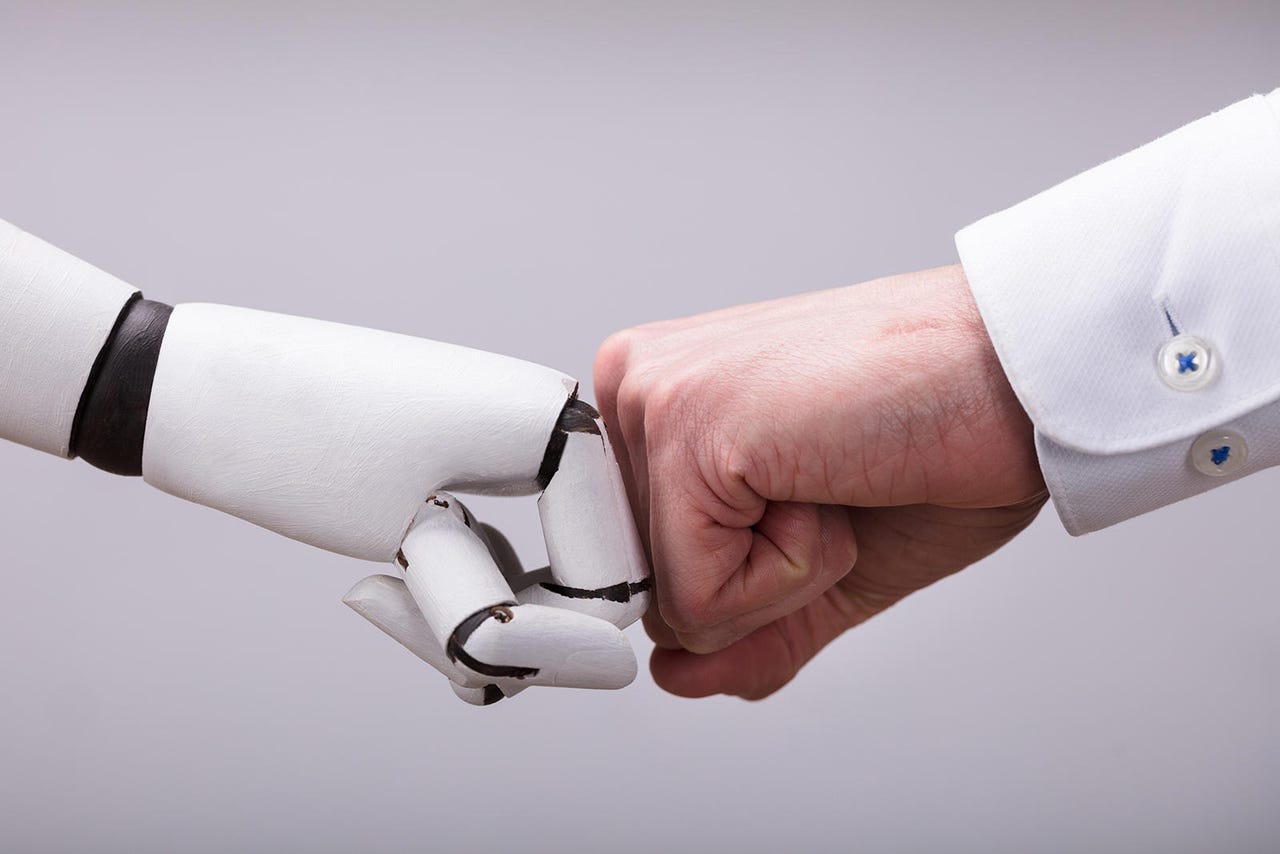Machines as consumers: The future according to Dell Technologies


Dell Technologies Australia and New Zealand managing director Angela Fox has painted a future where humans and machines learn to live in harmony and machines evolve to be consumers.
Delivering the Dell Technologies Forum keynote in Sydney last week, Fox discussed research that was conducted with the Institute of the Future, which looked at the next era of human-machine partnerships.
Fox touched on three developments that she expects will shift the economy in the future, with the first being autonomous commerce.
"We believe that you'll see machines evolving into consumers. They will use a mix of sensors, software updates, and artificial intelligence (AI) to determine when they -- and the people they serve -- are functioning sub-optimally, but more importantly, they will find ways to remedy it autonomously," Fox said.
See also: Most people would prefer to be replaced by a robot, not a human
Anticipatory production, the concept of on-demand manufacturing, which she explained as being the second development, will also become the norm.
"Innovation will be democratised and barriers to creating and commercialising products will actually reduce. Those people with limited resources today will manufacture complex things and they will be able to reach and market to the global audience," Fox continued.
The third development is the concept of "leapfrog economics".
"Leapfrog economies see us look at technical advancements that will unlock opportunities," she said. "They'll be inclusive, they will lift millions and millions of people out of poverty, and allow them to generate new sources of revenue, creating emerging economies that will leapfrog those today that are based on aging infrastructure."
The research also touched on the future of the workplace,forecasting that the combination of emerging technologies and the human-machine partnership would revolutionise work.
"The human-machine partnership ... will spread decision-making and collaboration across the workforce, so much so that the Institute of the Future is now forecasting three major shifts that will help shape a more inclusive and rewarding work environment: Inclusive talent, empowering workers, and AI influencing," Fox said.
This will be done, she said, through experimentation with hiring activities, as one example.
"They'll bring new types of workers that will be more productive and talented," she said.
She said handing the vetting process to AI will remove bias, another example, will uncover hidden talents in potential candidates. Gamification will also do its part in helping vet workers, Fox said.
See also: Michael Dell: Technology must reflect our humanity and our values
"Over the next decade, the workforce will also be more empowered than they ever have been using new technologies. Such technologies as augmented reality, and extended reality, will invite the next wave of collaboration," she said noting also that a global team in the future will be able to look, touch, and interact with something at the same time in such a paradigm.
"AI will not be an emerging technology; it will be the way we make sense of all the data that is coming at us."
According to Fox, by 2030, people will be supported by highly-personalised operating systems for living.
"What a concept," she said. "This will enable them to anticipate our needs, to proactively support us, to eliminate many of the mundane tasks that we currently do in life. Imagine a world where intelligent agents will understand what you need, and what you want, almost before you know yourself ... they will then liaise with multiple web services, with bots, with networked objects, and get the job done on your behalf.
"Quite fascinating to think of the future in which we're going to operate."
RELATED COVERAGE
- 13 takeaways on the future of work
- The future of work is an adaptive workforce
- Start the reskilling revolution without me: Future of Work trends and soft data on soft skills
- Where the tech jobs are -- and will be in the future
- Beyond experts: Jobs, tasks, and skills for a data driven Future of Work
- Policy pack: Workplace ethics (Tech Pro Research)
- 56% of employees lack digital skills needed for future jobs (TechRepublic)